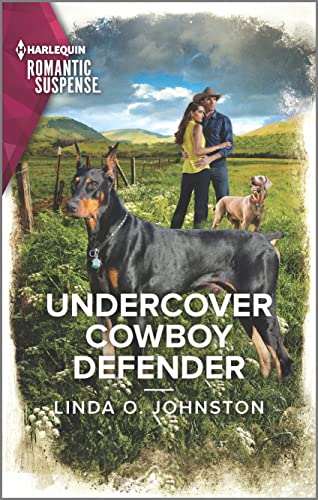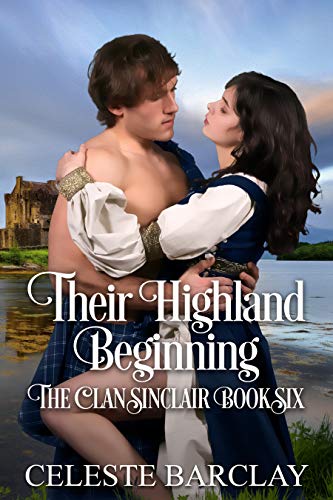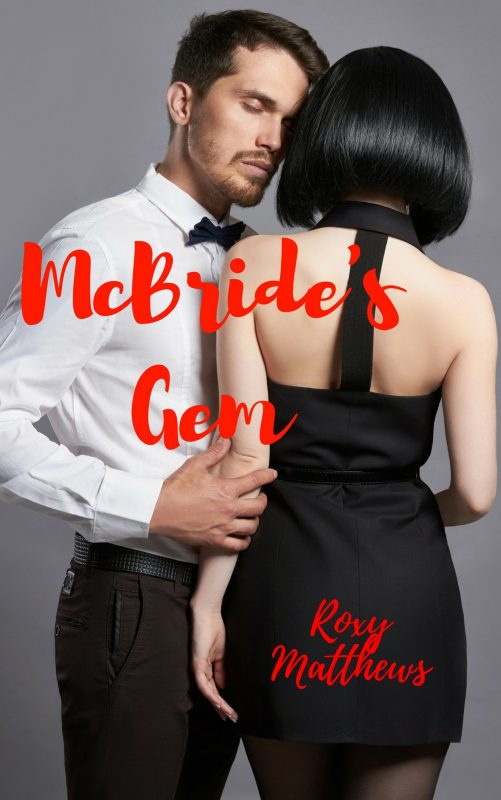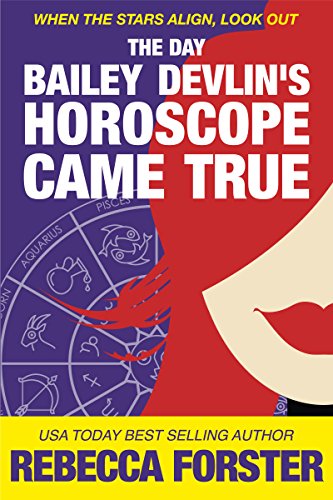H.O. Charles December Featured Author
December 21, 2017 by marianne h donley in category Featured Author of the Month tagged as books, fantasy, HO Charles, reading

H.O. Charles is an Amazon Top 100 Sci-Fi and Fantasy author of The Fireblade Array – a #2 best-selling series across Kindle, iBooks and B&N Nook in the Sci-Fi and Fantasy categories (#1 would just be showing off, right?)
Okay, it did hit #1 in Epic Fantasy in all those places… BUT DON’T TELL ANYONE because no one likes a bragger.
Though born in Northern England, Charles now resides in a white house in Sussex and sounds like a southerner.
Charles has spent many years at various academic institutions, and cut short writing a PhD in favour of writing about swords and sorcery instead.
Hobbies include being in the sea, being by the sea and eating things that come out of the sea. Walks with a very naughty rough collie puppy also take up much of Charles’ time.
The Write Spirit by Jenny Jensen
December 19, 2017 by Jenny Jensen in category On writing . . . by Jenny Jensen tagged as holidays, reading, reading about writing, writing We’re in the midst of the celebration season: Solstice, Hanukkah, Christmas, Cuanza, Wilkie Thumbnoggin. (Okay, that last one is just me but he’s a dear old friend and I only hear from him at this time of year; he leads such an interesting life. Can’t wait to hear what’s happened since that kerfuffle last year on the Isle of Jersey with the sea lions and Prince Charles.) It’s also the season of giving – or if giving isn’t practical, then sharing.
We’re in the midst of the celebration season: Solstice, Hanukkah, Christmas, Cuanza, Wilkie Thumbnoggin. (Okay, that last one is just me but he’s a dear old friend and I only hear from him at this time of year; he leads such an interesting life. Can’t wait to hear what’s happened since that kerfuffle last year on the Isle of Jersey with the sea lions and Prince Charles.) It’s also the season of giving – or if giving isn’t practical, then sharing.
I’d like to share with you some wonderful books – the fiction kind – about writing. We’re all readers and writers and we all read and write for different reasons. I read to learn something, to escape, to relax, to be entertained and, of course, to edit. But sometimes I read for therapy (as a 21st century American, I need a lot of therapy). My favorite therapy books are the fictional tales about writers. These stories deal so satisfyingly with the fears, annoyances and obstacles I run up against in my work in the same way you experience them in yours.
There’s nothing like a good writer examining the perils and pains of their craft through the lens of fiction. It’s not only enjoyable but also comforting to read an author’s take on the hazards we all face when we sit down to write. They address the dreaded writer’s block, the struggle for discipline, the angst of working with publishers and dealing with fans (think King’s Misery). The concept of a writer writing about writing is rich with a million possible premises because this business is – and always will be – about limitless possibilities.
[tweetshare tweet=”Editor Jenny Jensen’s Top Five Picks … On Writing” username=”A_SliceofOrange”]
Here are five of my picks. Some you may already have read but if not, I hope you’ll enjoy them.

Foul Matter, Martha Grimes (2004)
Ms. Grimes gives a grand romp through the egos, posturing and Machiavellian plotting of the industry of writing.

Blind Submission: A Novel, Debra Ginsberg (2006)
A wonderful indie look at delicate author sensibilities, the struggle for those next 1,000 words and the uses of an editor.

Piranha to Scurfy and Other Stories, Ruth Rendell (2001)
The title story offers the most satisfying rebuttal (or is it revenge?) to those obsessive readers who cannot let go of what they perceive to be a misplaced comma or an ‘incorrectly’ used word.

Plot It Yourself, Rex Stout (1959)
Every writer fears a charge of plagiarism. This tale is about a sort of reverse plagiarism and makes me ponder the infinite possibilities one can spin off an original premise.
Breakfast At Tiffany’s, Truman Capote (1958)
We never learn much about the narrator except that he’s a struggling writer. It’s through this writer’s eye that a rather tawdry story becomes magical. It’s the narrator’s portrayal of Holly Golightly, the way he invests her with an almost mystical quality that reaffirms for me the power of a writer’s vision.
If you can add to this list, I hope you will share. I’d love to read those tales about writing that have given you, if not therapy, at least a little wry solace. So happy reading and celebrate well this season!
Jenny
0 0 Read moreThe First…by @denisemcolby
December 12, 2017 by Denise M. Colby in category The Writing Journey by Denise Colby tagged as First, First Line Friday, reading, writingThe First…
Several words come to mind when I hear those words…
- The First Noel.
- The First Time in Forever. Yes it’s a Frozen song.
- And a few others I couldn’t quite remember the entire title.
We all know that Firsts are important.
Babies have a first laugh, a first word, their first step, and so on. Every stage of life has a first to it. The first day of preschool. The first day of high school. The first day of college.
There’s always a first for everything.
The dictionary defines first as; coming before all others in time or order; earliest; 1st; never previously done or occurring.
It’s no wonder that as writers, we all have and celebrate our firsts too:
- The first time we enter a contest
- Submit our work for a critique
- The first time we sign a contract
- The first time we are published
[tweetshare tweet=”@denisemcolby explains … The Firsts” username=”A_SliceofOrange”]
Even within our fictional manuscripts we have firsts:
- When our hero and heroine first lay eyes on each other
- Their first kiss (which is their last first kiss)
- The first time they realize they love the other person.
And part of the fun of writing is to get it right (a whole subjective term, I know, but that’s for a different post).
So, in our first book, getting the first Chapter correct is necessary. Writing the first paragraph in a way to grab readers is crucial. And delivering well, the first line of the book, is essential.
- Vital.
- Imperative.
I think you get the idea.
First Lines in books.
Now that I understand this in my writing journey, I’ve been tracking the first line in the books I read and study (thank you Leslie for the idea). And let me say, it’s amazing how different these lines are. Some start with dialogue, some start with action, and some start with an inner thought from the main character.
And they all start us on a mini adventure we are willing to sit and explore for hours.
Recently, my critique partner introduced me to her blog posts First Line Fridays, which are hosted by a blog called hoarding books.

Authors and readers write their own post on their blog, then post a comment at https://hoardingbooksblog.wordpress.com/ with a link to their posts. The post includes the first line from whatever book is near them or they are reading. I’ve seen this as a Facebook challenge before, but not as a blog post. It’s a great way to share books and authors with other readers, so I decided to join in the fray and post my first, First Line Fridays post this past Friday.
See how I did that? It’s my first! And I’m super excited about it.
If you’re so inclined to read it, you can check it out here. http://denisemcolby.com/first-line-friday-12-8-17/
And if you want to learn more about the hoarding books blog, you can go to https://hoardingbooksblog.wordpress.com/
Happy Reading,
Denise
P.S. I googled ‘The First’ quotes and found a website that organizes quotes by topic. There are a lot of quotes with the word first in them. Go to https://www.brainyquote.com/topics/first if your inclined to take a look.
 Although new to the writing fiction world, Denise Colby has over 20+ years experience in marketing, creating different forms of content and copy for promotional materials. Taking the lessons learned from creating her own author brand Denise M. Colby, Denise enjoys sharing her combined knowledge with other authors.
Although new to the writing fiction world, Denise Colby has over 20+ years experience in marketing, creating different forms of content and copy for promotional materials. Taking the lessons learned from creating her own author brand Denise M. Colby, Denise enjoys sharing her combined knowledge with other authors.
If you are interested in a marketing evaluation and would like help in developing a strategy for your author brand you can find out more here http://denisemcolby.com/marketing-for-authors/
An Interview with Jonathan Maberry by Diane Sismour @dianesismour
October 17, 2017 by marianne h donley in category Interviews tagged as Bethlehem Writers Roundtable, Contests, Diane Sismour, Jonathan Maberry, paranormal, reading, writing Writing is a solitary profession except when you meet someone like Jonathan Maberry.
Writing is a solitary profession except when you meet someone like Jonathan Maberry.
JONATHAN MABERRY is a New York Times best-selling and multiple Bram Stoker Award-winning suspense author, editor, comic book writer, magazine feature writer, playwright, content creator and writing teacher/lecturer. He was named one of the Today’s Top Ten Horror Writers. His books have been sold to more than two-dozen countries. Not only is he an exemplary author, he’s also part of a group known as the Philadelphia Liars Club. An organization known for helping writers become authors through workshops and meetings.
Long ago in one such workshop, I met Jonathan and he’s been one of my mentor ever since. I’m pleased to introduce Jonathan to my readers.
Hi Jonathan,
Thank you for taking the time from your busy schedule to answer a few questions. The Bethlehem Writer’s Roundtable has a Paranormal Short Story Contest starting on January 1st, 2018 and I would like to give my readers and the participants a scope of what to expect from the genre.
DIANE SISMOUR: How would you describe Paranormal as a genre compared to Horror or Fantasy?
JONATHAN MABERRY: Paranormal is often confused or conflated with supernatural, but they’re significantly different things. The supernatural refers to things like vampires and werewolves, demons and those kinds of monsters. Paranormal refers to things that may appear to be magical but are likely to be aspects of science as yet unquantifiable, such as telepathy, clairvoyance, telekinesis, and other kinds of ESP.
The word ‘paranormal’ is frequently misused in fiction, as seen in –say—paranormal romance, in which angels, demons, vampires, and so on are romantic figures. That’s actually supernatural, but try and get a publishing marketing exec to change the wording! Not a chance.
Supernatural elements fit very well with all kinds of fantasy storytelling, because fantasy has always been concerned with monsters, dragons, sorcery, gods, and so on.
Horror is a much broader category and there are no limits to what can fall under that umbrella. Horror can as easily be used to accurately describe a serial killer novel (Silence of the Lambs comes to mind) as a werewolf thriller or a Gothic ghost story.
 DS: There are so many crossover genres in today’s fiction. Do you feel this has helped the paranormal market and why?
DS: There are so many crossover genres in today’s fiction. Do you feel this has helped the paranormal market and why?
JM: The paranormal fiction market was created when romance became heavily associated with typically monstrous elements of fiction. Books like Interview with the Vampire helped give birth to what we now call ‘paranormal romance’. TV shows like Buffy the Vampire Slayer, Angel, Forever Knight, Charmed, True Blood, Vampire Academy, and so on, really propped this genre up; and novels by Laurell K. Hamilton, L.A. Banks, Sherrilyn Kenyon, Rachel Caine and many others have established it as a huge moneymaker.
All trends wax and wane, and one of the ways to keep them fresh is to spice them up with elements of other genres. Buffy is an example, because it is ostensibly a story about teenage angst and social anxiety wrapped up in a heroic battle against monsters. It’s also a coming of age story, an urban fantasy, a dark fantasy, a family drama, an action series, a comedy series, romance, and –well, I could go on and on. Every time they wanted to make it fresh they threw in some other genre elements –even a space alien (no joke). And…it worked.
The fanbase is easily jaded and wants more, which is why those writers who can bring in those other genre elements are the one who most often manage to surprise and intrigue their fans.
One show (and subsequent series of comics, games, anthologies and novels) that has very successfully combined paranormal, supernatural, horror, science fiction and fantasy genres is The X-Files. Week-to-week you never quite knew from which direction the punches would be coming. Which made the original series so much fun; and now it’s back.
DS: What hero and villain would you most like to write a battle about for world dominance?
JM: I’ve been toying with the idea of writing a story in which Nikolai Tesla and Dr. Moriarty team up to conquer the world. That would be a whole lot of fun to write. It would also combine science, science fiction, mystery, thriller, Steampunk, and action into one wild ride.
 DS: Your paranormal series, Rot & Ruin, gained huge acclaim in the Young Adult market, and the Joe Ledger novels continue as a fan favorite. Which character is your favorite and why?
DS: Your paranormal series, Rot & Ruin, gained huge acclaim in the Young Adult market, and the Joe Ledger novels continue as a fan favorite. Which character is your favorite and why?
JM: Actually the Rot & Ruin novels are straight science fiction. There are no paranormal or supernatural elements to them because the cause of the zombie plague is an old Cold War bioweapon based on actual parasites found in nature. I just finished a new novel in that series, which is the first of a spinoff storyline with a Latina bisexual teenage main character, Gabriella ‘Gutsy’ Gomez, who is a hell of a lot of fun to write.
But my all-time favorite character to write is Joe Ledger. His novels are predominately science fiction with some paranormal elements, and (in some books in the series) a taste of the supernatural. Ledger is a character I can throw into any series or any story. Between the ten novels in the series, two collections of short stories, a guest appearance in a comic book (V-Wars) and an upcoming anthology with original Ledger stories by my writer colleagues, Ledger has faced corrupt scientists, terrorists with cutting-edge bioweapons, secret societies, genetically-engineered vampires, werewolf super soldiers, changelings, ghosts, alien space spiders, and even H.P. Lovecraft’s elder god, Cthulhu. And he guest-stars in the Rot & Ruin novels.
DS: You have written short story fiction and novels. What elements should a short story contain compared to works of longer fiction?
JM: Short fiction is often similar to the third act of a novel. We typically hit the ground with events already in motion and don’t always pause to explain everything. Much is implied. There are fewer character and the character relationship arcs are less deeply explore, though again, much can be implied to suggest greater depth of that relationship. In a novel, for example, you might explore how a couple falls in love, some highs and lows of that budding relationship, interactions with other people, and view the whole process through the filters of different scenes that put different kinds of stress on those two characters. In a short story we might step in when one of them is lying in an empty bed; or driving away from a burning house; or trying not to sign the divorce papers; or at a funeral; or in the delivery room. We join their lives in progress.
My personal style for writing short stories is episodic. I break my short fiction into several mini-chapters. Micro-chapters, really. These allow me to build scenes and then jump to the next important story moment without having to write the transitional material between scenes. I also use those mini-scenes to allow me to establish dramatic beats even within a larger overall scene. In that way I’m using a condensed version of the same style I use for my novels.
DS: What pitfalls should a writer avoid when editing the final draft?
JM: It’s never a good idea to rewrite anything before a first draft is done. It packs on time, frequently derails the whole project; shifts focus from one skill set (storytelling) to another (revision), often to the detriment of mental focus and overall momentum; and often results in an uneven story, with the early sections more overwritten then the later.
I advise my writing students to draft the story out into a logical plot outline. However I remind them that it’s illogical to assume that you’re going to have all of your best story ideas the day you write out that plot. So, be flexible. Allow for organic growth in both plot and character evolution. Having the plot roughed out, though, is smart. Plots are the mathematical equation of cause and effect that establishes the internal logic. Without knowing how a story ends you can properly foreshadow, built tension that supports the conclusion, and so on; and you often waste time writing scenes that don’t serve the story and will likely need to be cut.
DS: Which authors most inspired you, and why?
JM: I have the great good fortune as a young teen to meet, get to know, and be mentored by Ray Bradbury and Richard Matheson. They were very kind and generous with their support and advice. They taught me to make serious studies of both the craft elements of writing as well as the policies and practices of the business of publishing. They also advised me to be generous and compassionate –both to other writers and in general. That was key advice for a troubled teen who need a gentle nudge in the right direction.
DS: What’s new that you’d like to share with us?
JM: I’m in the middle of one of the busiest years of my career. I’m about to start writing my third novel this year (#33 overall). I have a standalone novel, GLIMPSE, coming out in March that is getting a lot of advance buzz from folks like Clive Barker, Scott Smith, James Rollins, Charlaine Harris and others. And it’s being considered for TV. A couple of my other projects are also heading to film or TV. So that’s exciting. I just finished writing Broken Lands, the first of a new spinoff of my Rot & Ruin series of post-apocalyptic novels for teens. Next up is the 10th Joe Ledger thriller, and then I jump in to writing the first in a new teen series of mystery thrillers. I’ve also got an anthology, JOE LEDGER: UNSTOPPABLE, debuting Halloween day, with original stories using my characters written by a slew of other authors. And just after that my dark fantasy/urban fantasy/mystery genre-mashup anthology, HARDBOILED HORROR debuts. Really looking forward to seeing that launch. And I’m editing KINGDOMS FALL, an anthology of epic fantasy. So…I’m driving in the fast lane and having a hell of a lot of fun.
Readers will find a selection of Jonathan Maberry’s titles below:
 Jonathan Maberry was interviewed by Diane Sismour. Diane has written poetry and fiction for over 35 years in multiple genres. She lives with her husband in eastern Pennsylvania at the foothills of the Blue Mountains. Diane is a member of Romance Writers of America, Bethlehem Writer’s Group LLC, Horror Writers Association, and Liberty States Fiction Writers. She enjoys interviewing other authors and leading writer’s workshops. Diane’s shorts stories are available on A Slice of Orange.
Jonathan Maberry was interviewed by Diane Sismour. Diane has written poetry and fiction for over 35 years in multiple genres. She lives with her husband in eastern Pennsylvania at the foothills of the Blue Mountains. Diane is a member of Romance Writers of America, Bethlehem Writer’s Group LLC, Horror Writers Association, and Liberty States Fiction Writers. She enjoys interviewing other authors and leading writer’s workshops. Diane’s shorts stories are available on A Slice of Orange.
Her website is www.dianesismour.com, and her blog is www.dianesismour.blogspot.com. You can find her on Facebook and Twitter at: http://facebook.com/dianesismour, http://facebook.com/networkforthearts, https://twitter.com/dianesismour
We would like to thank both Jonathan and Diane for contributing to A Slice of Orange.
Interested writers can find more information in The Bethlehem Writers Roundtable Fall issue.
0 1 Read moreSay What!?
September 19, 2017 by Jenny Jensen in category On writing . . . by Jenny Jensen tagged as editing, reading, Revising, writing Every writer has to be an editor to some degree. Reading and revising what you’ve written is the first line of attack; the skirmish before an editor gets unbiased hands on the work. What are you looking for when you edit your own work? Search and destroy all worm words, cut down on adverbs and adjectives, delete extraneous dialog tags, trim unneeded prose; there is a ton of excellent advise on the web to help with a self-edit. But can it help you catch the muddle?
Every writer has to be an editor to some degree. Reading and revising what you’ve written is the first line of attack; the skirmish before an editor gets unbiased hands on the work. What are you looking for when you edit your own work? Search and destroy all worm words, cut down on adverbs and adjectives, delete extraneous dialog tags, trim unneeded prose; there is a ton of excellent advise on the web to help with a self-edit. But can it help you catch the muddle?
When you are on that heady writing roll where the words just flow and the story unfolds in your mind like a film then you write what you’re seeing — it’s a grand feeling. Just be sure you wrote what you meant to convey. When you reread those words you’re fixed on the meaning you intended. When an editor reads those same words they… just might laugh. Ah the consequence of the unintended.
I’ve encountered this muddle most where eyes are involved. Probably because it’s said that the eyes are windows to the soul. We’ve imbued two innocent organs with a near paranormal ability to transmit intent. And I think they can. The face is expressive but the eyes really can appear shifty, or soulful or hurt. And if you’ve ever really pissed your mom off, then you know that eyes can harden in anger. But there’s a thin line between expressive eyes and hilarious word play.
He lied. His eyes gave him away, gaze dropping fast to the floor and remaining there. Well, pick that gaze up for heavens sake. It’s dusty down there. But I get it and it works beautifully in the context of the scene, if it just didn’t conjure an image that makes me chuckle. We went with: He lied. The eyes gave him away. He couldn’t look at us. It was a great thriller and the book did well.
A different author; the scene is tense, the captive character needs to scope out the situation, there has to be a way out. Her eyeballs skittered across the room. Oh my! That hurts — eyeballs rolling away like errant marbles. It isn’t pretty. Please, let’s try: She scanned the room frantically…” It fit the moment and the book sold admirably.
OK, maybe the eyeball fix wasn’t the deciding sales factor — each of these authors is very, very good — but, in the end, neither provided unintended laughter. When you self-edit pay heed to what you’ve written. Do the words convey what you actually intended? Be vigilant of the muddle. No one wants to step on a skittering eyeball.
 With a BA in Anthropology and English I pursued a career in advertising and writing and segued into developmental editing. It was a great choice for me. I love the process of creating and am privileged to be part of that process for so many great voices — voices both seasoned and new.
With a BA in Anthropology and English I pursued a career in advertising and writing and segued into developmental editing. It was a great choice for me. I love the process of creating and am privileged to be part of that process for so many great voices — voices both seasoned and new.
I’ve worked on nearly 400 books over 20 years, books by noted authors published by New York houses including Penguin, Kensington, Pentacle and Zebra as well as with Indie bestsellers and Amazon dynamos. From Air Force manuals and marketing materials to memoirs, thrillers, sci fi and romance, my services range from copyediting to developmental coaching.
Having worked in advertising and marketing, I am always cognizant of the marketplace in which the author’s work will be seen. I coach for content and style with that knowledge in mind in order to maximize sales and/or educational potential. My objective is to help the author’s material stand out from an ever more crowded and competitive field.
2 0 Read more
Affiliate Links
A Slice of Orange is an affiliate with some of the booksellers listed on this website, including Barnes & Nobel, Books A Million, iBooks, Kobo, and Smashwords. This means A Slice of Orange may earn a small advertising fee from sales made through the links used on this website. There are reminders of these affiliate links on the pages for individual books.
Search A Slice of Orange
Find a Column
Archives
Featured Books
THE CHRISTMAS PRESENT
HOW FAR WOULD YOU GO TO PROTECT THE ONES YOU LOVE?
More info →MCBRIDE’S GEM
Hawk McBride and Randi Ronin could never have expected their chance encounter would be the beginning of the rest of their lives.
More info →THE DAY BAILEY DEVLIN’S HOROSCOPE CAME TRUE
Oh, boy! Oh, Bailey! What are you going to do when Fate decides to have a little fun?
More info →Newsletter
Contributing Authors
Search A Slice of Orange
Find a Column
Archives
Authors in the Bookstore
- A. E. Decker
- A. J. Scudiere
- A.J. Sidransky
- Abby Collette
- Alanna Lucus
- Albert Marrin
- Alice Duncan
- Alina K. Field
- Alison Green Myers
- Andi Lawrencovna
- Andrew C Raiford
- Angela Pryce
- Aviva Vaughn
- Barbara Ankrum
- Bethlehem Writers Group, LLC
- Carol L. Wright
- Celeste Barclay
- Christina Alexandra
- Christopher D. Ochs
- Claire Davon
- Claire Naden
- Courtnee Turner Hoyle
- Courtney Annicchiarico
- D. Lieber
- Daniel V. Meier Jr.
- Debra Dixon
- Debra H. Goldstein
- Debra Holland
- Dee Ann Palmer
- Denise M. Colby
- Diane Benefiel
- Diane Sismour
- Dianna Sinovic
- DT Krippene
- E.B. Dawson
- Emilie Dallaire
- Emily Brightwell
- Emily PW Murphy
- Fae Rowen
- Faith L. Justice
- Frances Amati
- Geralyn Corcillo
- Glynnis Campbell
- Greg Jolley
- H. O. Charles
- Jaclyn Roché
- Jacqueline Diamond
- Janet Lynn and Will Zeilinger
- Jeff Baird
- Jenna Barwin
- Jenne Kern
- Jennifer D. Bokal
- Jennifer Lyon
- Jerome W. McFadden
- Jill Piscitello
- Jina Bacarr
- Jo A. Hiestand
- Jodi Bogert
- Jolina Petersheim
- Jonathan Maberry
- Joy Allyson
- Judy Duarte
- Justin Murphy
- Justine Davis
- Kat Martin
- Kidd Wadsworth
- Kitty Bucholtz
- Kristy Tate
- Larry Deibert
- Larry Hamilton
- Laura Drake
- Laurie Stevens
- Leslie Knowles
- Li-Ying Lundquist
- Linda Carroll-Bradd
- Linda Lappin
- Linda McLaughlin
- Linda O. Johnston
- Lisa Preston
- Lolo Paige
- Loran Holt
- Lyssa Kay Adams
- Madeline Ash
- Margarita Engle
- Marguerite Quantaine
- Marianne H. Donley
- Mary Castillo
- Maureen Klovers
- Megan Haskell
- Melanie Waterbury
- Melissa Chambers
- Melodie Winawer
- Meriam Wilhelm
- Mikel J. Wilson
- Mindy Neff
- Monica McCabe
- Nancy Brashear
- Neetu Malik
- Nikki Prince
- Once Upon Anthologies
- Paula Gail Benson
- Penny Reid
- Peter Barbour
- Priscilla Oliveras
- R. H. Kohno
- Rachel Hailey
- Ralph Hieb
- Ramcy Diek
- Ransom Stephens
- Rebecca Forster
- Renae Wrich
- Roxy Matthews
- Ryder Hunte Clancy
- Sally Paradysz
- Simone de Muñoz
- Sophie Barnes
- Susan Squires
- T. D. Fox
- Tara C. Allred
- Tara Lain
- Tari Lynn Jewett
- Terri Osburn
- Tracy Reed
- Vera Jane Cook
- Vicki Crum
- Writing Something Romantic
Affiliate Links
A Slice of Orange is an affiliate with some of the booksellers listed on this website, including Barnes & Nobel, Books A Million, iBooks, Kobo, and Smashwords. This means A Slice of Orange may earn a small advertising fee from sales made through the links used on this website. There are reminders of these affiliate links on the pages for individual books.


































































